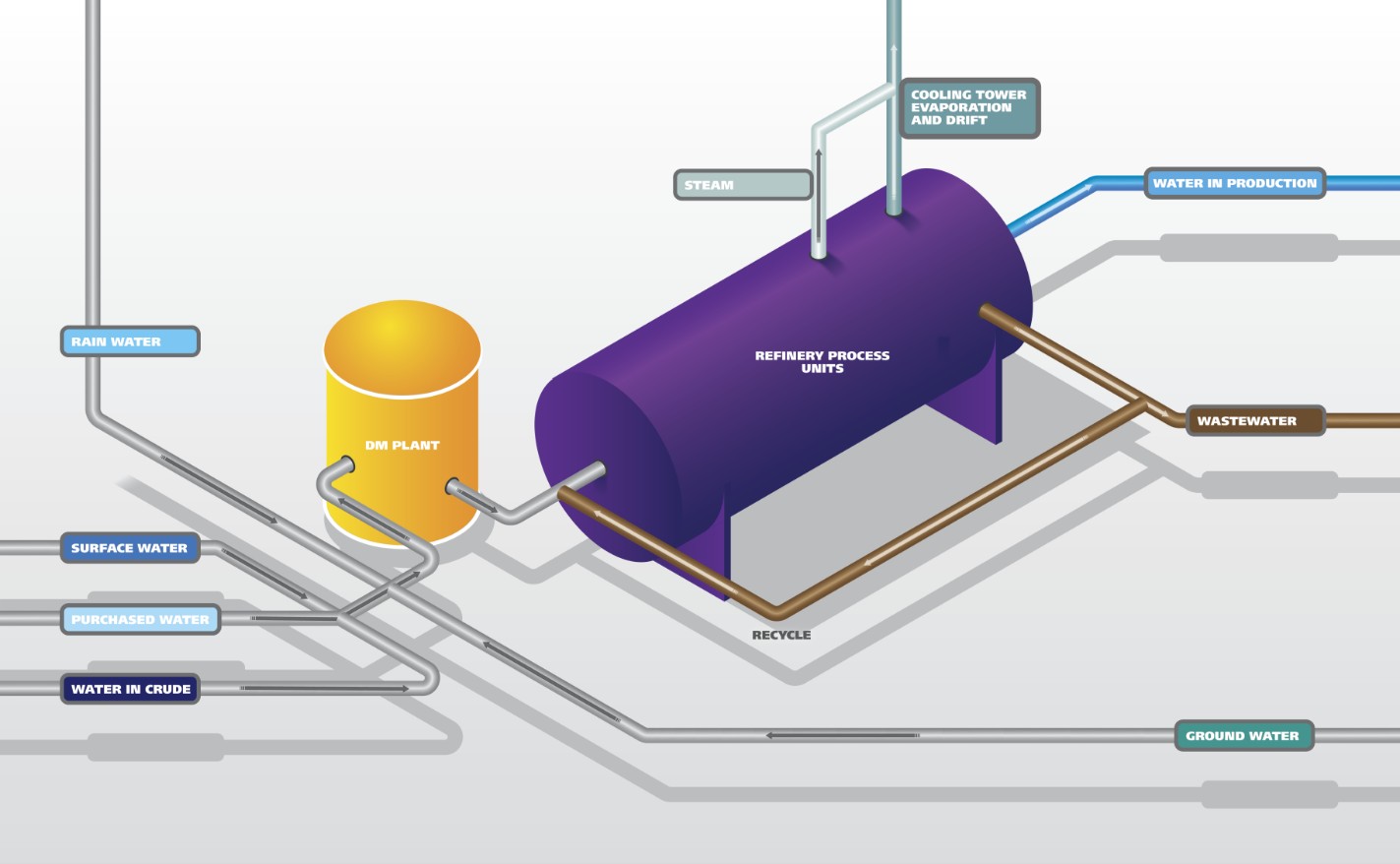Water & Waste Water Monitoring
Many of the processes in a petroleum refinery use water in large quantities. Refineries also generate a significant amount of waste water that has been in contact with hydrocarbons. In addition, most organic and inorganic compounds found in the refinery accumulate in this process water. To sustain this resource, refineries treat the waste water and reuse it for various process applications. This requires treatment utilizing reliable analyses that monitor the composition of the water continuously.
Raw water or source water for refineries could come from lakes, rivers, groundwater or seawater. Due to the specific requirements of process water in the refinery, all source water needs to be treated before being used for refinery applications.

Waste water from refineries contains high levels of pollutants and is characterized by the presence of large quantities of oil products and other chemicals that are hard to degrade. With increasing regulatory limits and stringent monitoring requirements, most refineries are forced to use advanced water treatment, recovery and process monitoring technologies. Major waste water streams in refineries include desalter water, sour water, spent caustic formed in the extraction of acidic compounds from products, tank bottoms, and condensate blow down.
